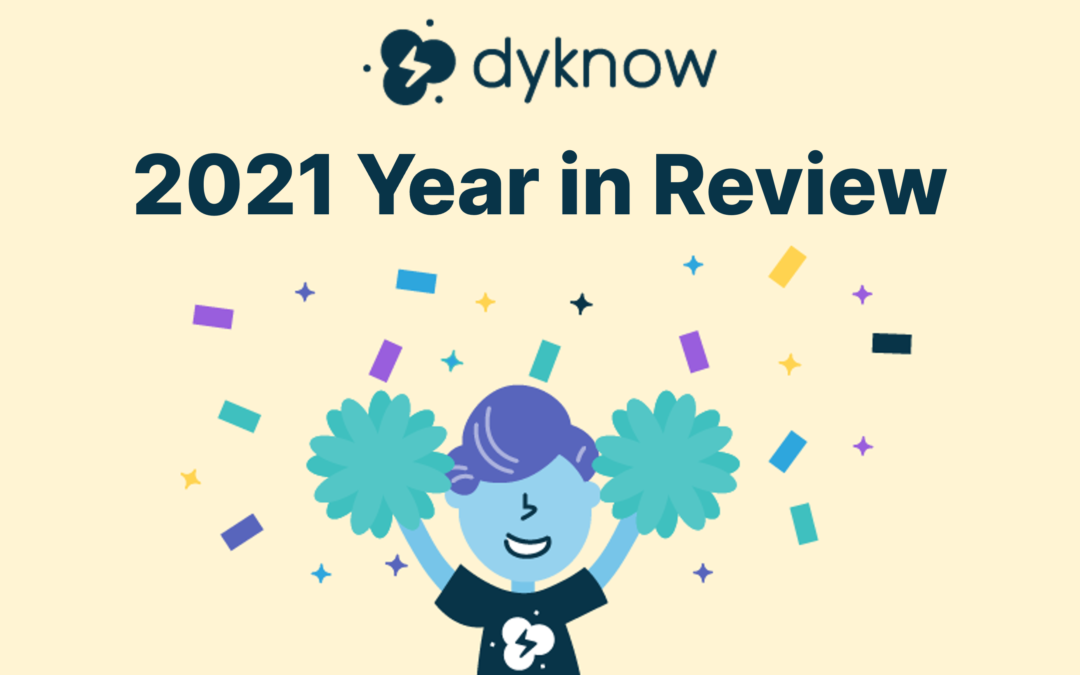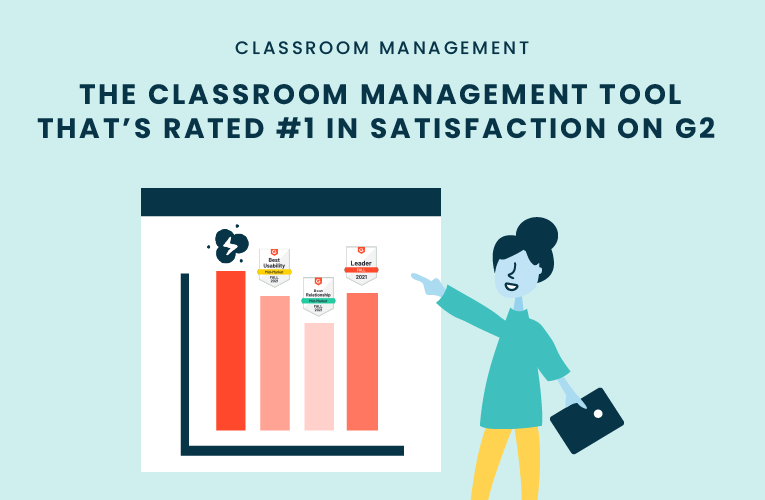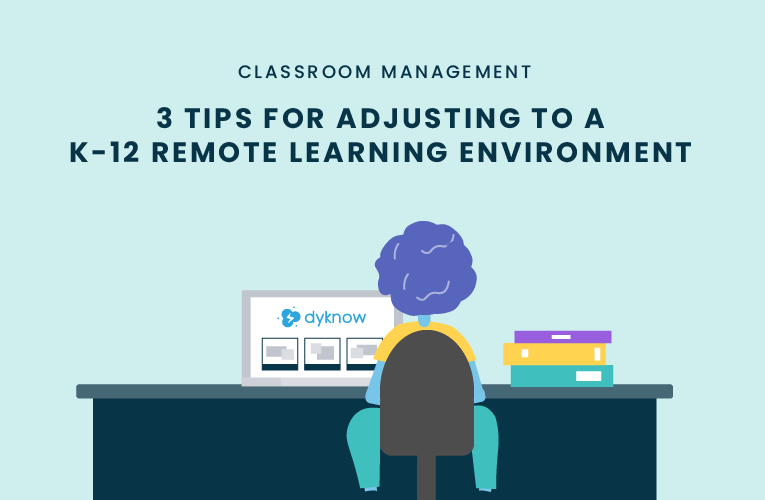In the past few months, global events have completely changed the way that people work and communicate, regardless of what industry they are in. The education industry specifically has shifted initiatives to K-12 remote learning environments – otherwise referred to as e-Learning.
During this time it can be most helpful to learn from educators and administrators about how they are functioning and adjusting to this K-12 remote learning environment.
In a recent conversation with Elizabeth Walhof, Assistant Principal at Air Academy High School, we learned how her school has been adjusting to the new K-12 remote learning landscape. Elizabeth also shared 3 helpful tips that all Teachers, Tech Coaches, Administrators – and frankly anyone who is working remote regardless of industry – should implement to make this lifestyle adjustment more manageable.
The transition to a K-12 remote learning environment
For some schools and districts, the transition to remote learning was announced during Spring Break, giving technology teams and administrators a grace period to put a plan and necessary resources in place. Elizabeth’s school, on the other hand, was still in session, so they were required to make the K-12 remote learning transition without such a grace period. So, how are they making it work?
Holding Teachers Accountable
At the High School, Elizabeth and her team have put together a simple list for educators on what their responsibilities are and information on the use of their LMS so that everyone is in the same place with access to the same resources. Their team also outlined specific expectations for teachers so that there is consistency and accountability from all faculty members. Teachers at Air Academy High School are asked to:
- Post one assignment a day for students to complete
- Hold 1 hour of office hours per day
- Stay on top of grading and responding back to students in a timely manner
Gathering Student and Teacher Feedback
Elizabeth uses Air Academy High School’s Instagram account to check in with students each day to gather feedback and find room for improvement during this K-12 remote learning transition. She gathers similar feedback from faculty and staff members by checking in via their LMS to find celebrations and discover gaps. She explains that this transitional period requires a constant process of discovery and learning to understand where to make changes. The shift to K-12 remote learning is anything but static.

3 tips for anyone adjusting to a remote work environment
Having been in this K-12 remote learning transition for a while now, Elizabeth shared three key pieces of advice for anyone else in the education space still trying to adjust to the remote learning environment. Although these three tips were given in the context of K-12 education, they really apply to any industry going through a remote transition.
1. Figure out who your support team is
In most cases, these are people who have a specific designation as leadership, but new natural leaders might pop up during this time. This will create both a formal support team and a newly established support team. Keep that group tight, focused, and collaborate so that no one person is getting burnt out.
2. Talk to your people and leadership every day.
It’s crucial to talk to your team, students, and leadership every day. Be transparent about what is going on – the good, the bad, and the ugly. Leaders can’t support you if they don’t know what your real needs are. It’s also reassuring for students to know that this transition is just as difficult for teachers – if not more.
3. Determine what your work-life balance is going to be.
Figure out when you can spend time with your kids or when you can walk your dog, and prepare your meals so that your priorities come first. Make those boundaries clear to your students, teachers, and anyone who is supporting you so that they know when you won’t be available. Create a clear distinction between “work time” and “personal time” and keep those boundaries conisistent.
Elizabeth shared that at the start of this K-12 remote learning transition, she was glued to her work space from 6 am to 11 pm, putting the priorities of her teachers above her own personal priorities and needs. She explained that she wanted to be as responsive as possible for her team. From this experience, she now encourages people to find a balance, because if you overdo it, you run the risk of being overworked and out of commission.

Listen to our full conversation with Elizabeth on the Tackling Tech podcast!
On this episode of Tackling Tech Podcast, powered by Dyknow, Brett McGrath talks with Elizabeth Walhof, Assistant Principle at the Air Academy High School in Colorado Springs. The two discuss the current state of the world amid the COVID-19 pandemic and how her school district is moving forward. Elizabeth had a nontraditional career path from high school teacher, to working at the District Level, and now back at the school level as an Assistant Principal. She shares what she’s learned along the way and advises on how to make meetings and communication more efficient.
Start teaching confidently with Dyknow for free!
Latest blog articles

Dyknow 2021 Year In Review
In addition to web browser updates and bug fixes, Dyknow released several major product updates, new features and enhancements. Check out Dyknow’s 2021 Year in Review!

The Classroom Management Tool that’s Rated #1 in Satisfaction on G2
K-12 Administrators across the world trust G2 as the #1 platform to find, research, and choose EdTech tools that solve the most pressing problems their teachers are experiencing. In G2's Fall 2021 Reports, Dyknow was once again rated #1 in overall Satisfaction out of...

Bringing Diversity and EdTech to the English Classroom
On this episode of Tackling Tech, Tierra Leustig interviews Scott Bayer about being an anti-racist teacher, diversifying reading lists, creating inclusive learning environments, and leveraging ed-tech in non-technical ELA classrooms. Scott Bayer is a High School...

